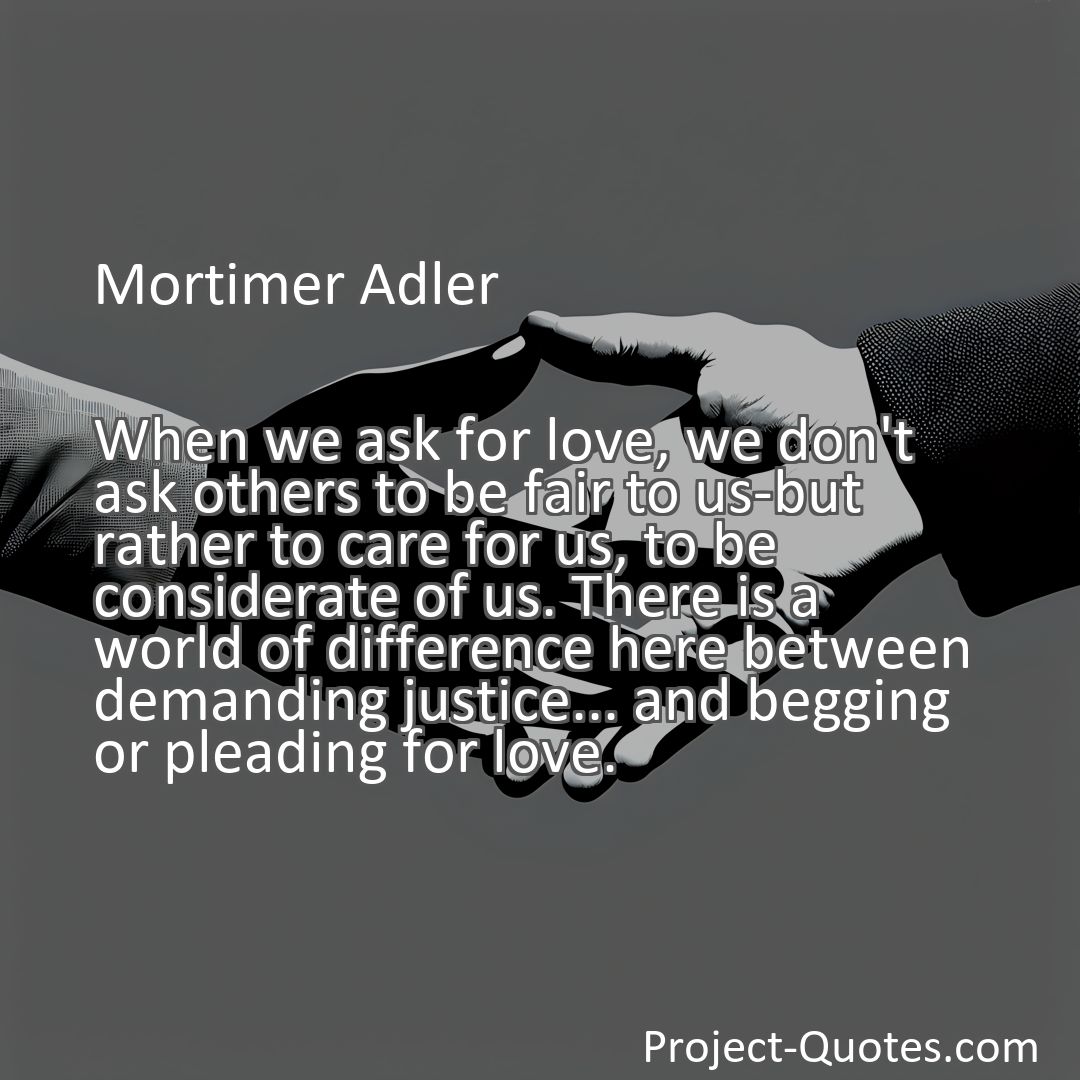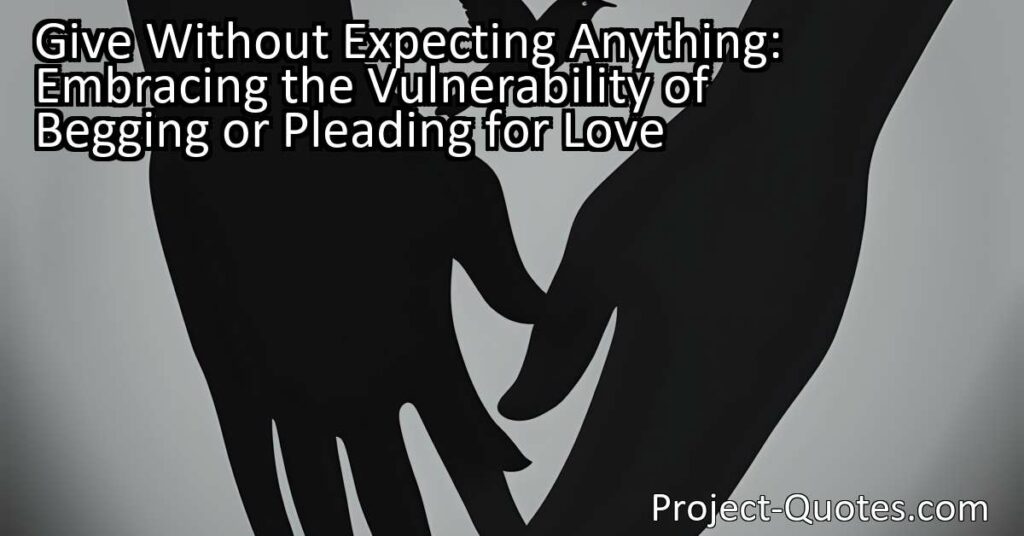When we ask for love, we don’t ask others to be fair to us-but rather to care for us, to be considerate of us. There is a world of difference here between demanding justice… and begging or pleading for love.
Mortimer Adler
“Give Without Expecting Anything: Embracing the Vulnerability of Begging or Pleading for Love” explores the complexity of human relationships and the deep emotional desire for love. It emphasizes that love cannot be demanded or forced, but thrives in an atmosphere of mutual affection and understanding. The article encourages embracing vulnerability and acknowledging that love is about care and consideration, not fairness or reciprocity.
Table of Contents
- 1 When we ask for love, we don’t ask others to be fair to us-but rather to care for us, to be considerate of us. There is a world of difference here between demanding justice… and begging or pleading for love.
- 2 Mortimer Adler
- 3 Meaning of Quote – When we ask for love, we don’t ask others to be fair to us-but rather to care for us, to be considerate of us. There is a world of difference here between demanding justice… and begging or pleading for love.
- 4 Freely Shareable Quote Image
- 5 Related
Meaning of Quote – When we ask for love, we don’t ask others to be fair to us-but rather to care for us, to be considerate of us. There is a world of difference here between demanding justice… and begging or pleading for love.
In life, we all long for love and connection. It’s a fundamental human need that transcends age, gender, and cultural differences. Love has the power to heal wounds, mend broken hearts, and fill our lives with joy and purpose. However, when we seek love, it’s important to understand that we are not asking others to be fair to us. Instead, we yearn for them to care for us and be considerate of our feelings. This distinction between demanding justice and begging or pleading for love is a crucial one, as it highlights the complexities of human relationships and our deepest emotional desires.
Love is not a commodity that can be demanded or forced upon others. It is a tender emotion that thrives in an atmosphere of mutual affection, respect, and understanding. When we ask someone to love us, we are not demanding that they do so out of a sense of obligation or fairness, rather we are inviting them to form a genuine connection and to invest in a relationship that brings fulfillment to both parties involved.
When we demand justice, we expect others to conform to a set of predetermined standards and rules, ensuring that everyone is treated fairly and equitably. This approach is rooted in reason and hinges on the idea that fairness is essential for a just society. However, love operates on a different plane. Love is not governed by rules or principles, but by the tender, vulnerable nature of our hearts. It cannot be measured or quantified, and it surpasses the boundaries of fairness.
Begging or pleading for love represents our deepest desire for emotional intimacy and connection. It is not a sign of weakness or desperation, but an acknowledgment of our longing for love. When we beg or plead for love, we lay bare our vulnerability and entrust our hearts to the hands of another person, hoping that they will reciprocate our affection and care.
The act of begging for love can be seen as a leap of faith, as we surrender control and put our emotional well-being in the hands of others. It requires immense courage to expose our deepest desires and risk rejection or disappointment. However, this act of vulnerability can also be incredibly empowering, as it allows us to establish deep and meaningful connections with others.
In modern society, the concept of love has become entangled with notions of fairness, reciprocity, and equality. We often seek love with the expectation that it will fulfill certain needs and meet our desires. While it is natural to desire reciprocation and to be treated with kindness and consideration, it is important to remember that love does not function within the boundaries of fairness alone.
Love, at its core, is about selflessness and putting the needs and happiness of others before our own. It is about nurturing and growing a connection, not as a result of fairness, but out of genuine care and concern. Love flourishes when we are considerate of each other’s feelings, when we listen attentively, support one another, and celebrate each other’s successes and joys.
To beg or plead for love is not a demand for justice, but a plea for understanding, compassion, and empathy. It is a call for emotional support and validation, for someone to see us as we truly are and accept us with our imperfections and vulnerabilities. When we ask for love in this way, we are not seeking to impose our needs on others, but inviting them into our hearts and souls.
Love, in all its beauty and complexity, is what makes us human. It is a force that has the power to transform lives, heal wounds, and create a sense of belonging. When we approach love with an open heart and a willingness to give without expecting anything in return, we create an environment where love can flourish and grow.
So, let us not demand justice when it comes to love. Instead, let us embrace the vulnerability of begging or pleading for love and acknowledge that love is not about fairness but about care and consideration. Let us open our hearts to the possibility of profound connections and cherish the beauty and tenderness that love brings into our lives.
I hope this quote inspired image brings you hope and peace. Share it with someone who needs it today!


